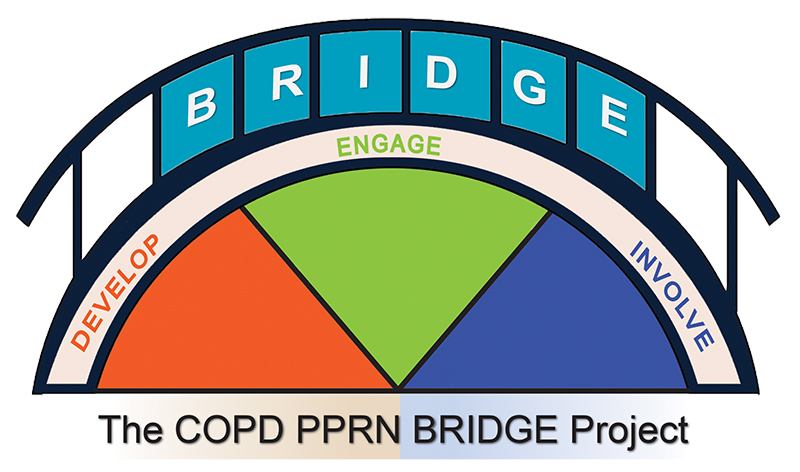Patient/Caregiver Developed Research Agenda Related to Mental Health in the Context of COPD and COVID-19
Using similar methods as the Patient/Caregiver COPD Research agenda, a mental health agenda was created to help assess the impact of the COVID pandemic in people living with COPD, along with a list of potential resources required to improve the mental well-being of patients who are facing long-term isolation and fear resulting from COPD and risk of COVID-19.
The agenda highlights the need for funding groups to consider broad research priorities going beyond the essential areas of mental health and social isolation. Additionally, these patient-identified priorities should be considered in subsequent disaster and future pandemic planning efforts.

Patient/Caregiver Developed COPD Research Agenda for Mental Health in the context of COPD
Stem: Since the COVID pandemic began in early 2020, I am or have been concerned, worried, or afraid about:
- Getting COVID-19 on top of my COPD or other chronic lung disease affects most of my thoughts or actions
- Doing the activity or exercise I need to maintain my health, breathing ability, and well-being
- Wearing masks--when and which ones to try and what to do if I cannot breathe when wearing a mask
- Being able to be with or attend family functions/celebrations or social gatherings
- Knowing what it is safe for people with COPD to do during the pandemic
- Not knowing when, if ever, I will be able to get out or do my usual activities again
- Not knowing when, if ever, I will be able to do the things I have planned for my future
- Not knowing if there will ever be a COVID vaccine that works well for older people
- Getting all or enough of my COPD or other chronic lung disease medicines due to problems such as shortages, costs, or trouble having them delivered or me getting to the pharmacy
- Delaying important tests like spirometry, lung function tests, lung x-rays, or CT (CAT) scans needed to follow or treat COPD or another chronic lung disease
- Being able to recover from or get help for the stress, depression, and/or anxiety caused by the pandemic
- Knowing how telehealth will be used for my health care needs over the next several years
- Continuing to do volunteer activities or work outside my home that are important to the community and to my self-worth and health
- Dying alone at home or in the hospital with no one with me and no way for me to say goodbye to family and friends
- Knowing where to find or how to tell if the COVID-19 information I get is right (correct) for people with COPD
- Delaying important tests for my health beyond my COPD or other chronic lung disease like mammograms, blood tests, or lung cancer screening
- Getting the food/meals I need to maintain my health and well-being while not putting myself at risk
- Delaying going to my doctor’s office when I need to for my COPD because of concerns about getting COVID-19
- Delaying going to an emergency department for problems with my COPD when I need to because of concerns about getting COVID-19
- Delaying being admitted to the hospital for my COPD flare-up or exacerbations when I need to because of concerns about getting COVID-19
- Trying to explain my concerns about COPD and COVID-19 to family or friends
- Getting personal care support that I need due to my COPD so that I can maintain my health and be able to interact with others in person or by distance such as on social media
- Being able to pay my bills due to things happening since the pandemic started including higher costs, need for more help, or losing income
- Trying to understand or feeling confused or frustrated about much of the COVID-19 information I see
- Delaying getting routine vaccines (flu, pneumonia, shingles) because I worry they make me more likely to get COVID-19
This project was funded through a Patient-Centered Outcomes Research Institute® (PCORI®) Eugene Washington PCORI Engagement Award (EA-PPRN-00035).
The statements presented in this work are solely the responsibility of the authors and do not necessarily represent the views of the Patient-Centered Outcomes Research Institute® (PCORI@reg;), its Board of Governors, or Methodology Committee.